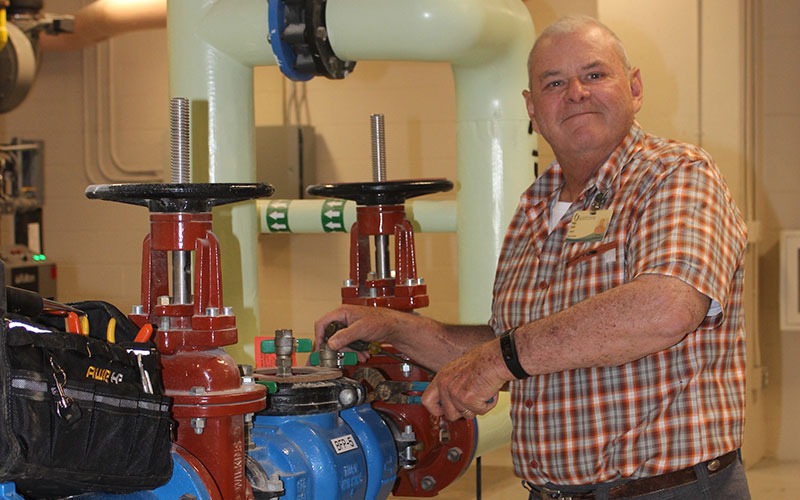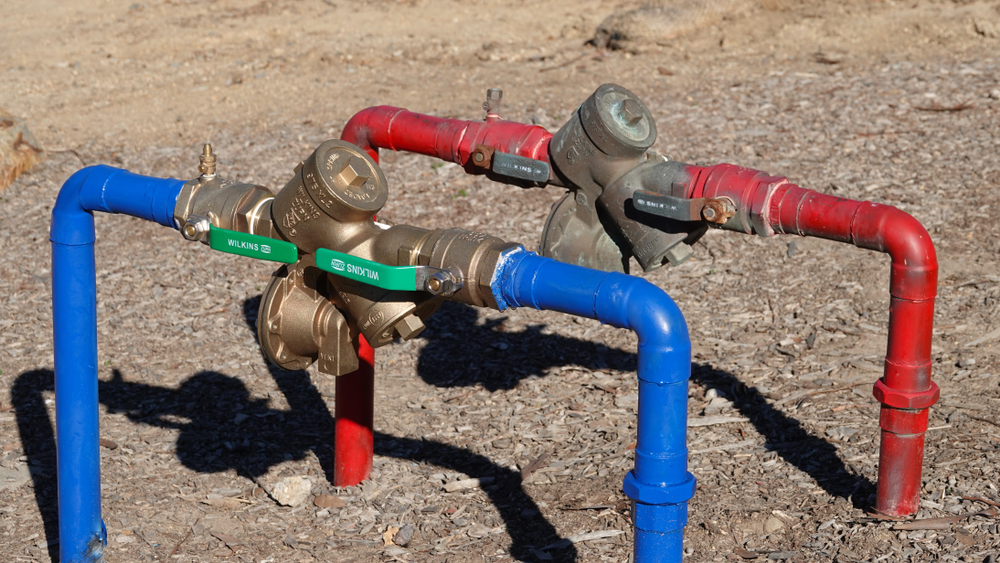Is It Required to Check for Backflow in My Water
Is It Required to Check for Backflow in My Water
Blog Article
Just how do you feel in regards to Is backflow testing necessary??

Yes, you need to backflow test your home's supply of water to make certain that the water is free of contaminants and also harmful levels of chemicals. Due to the equipment needed as well as room for mistake, you need to not try to do backflow screening on your own. We advise that you call a professional plumber every couple of years to test your water.
What is Backflow?
Simply put, backflow is when water moves upwards-- the contrary direction in the plumbing system. This is additionally called "backpressure." When the water relocates this direction, it can mix with damaging toxic substances and also position a risk.
What Creates Backflow?
A normal source of backflow is a loss of water pressure that creates the water to siphon back right into the water supply. An instance is cleaning out a paint pail using a hose. You fill the paint pail up with water, leaving the hose pipe in the container. After time, there is a loss in water stress as well as the hose begins to draw the water back right into the supply of water. As you can imagine, there are currently chemicals from the paint that are going into the water supply, potentially posturing a danger. Numerous people are not even aware of heartburn screening, but there are numerous factors why it's so crucial.
Backflow Screening is Required by Law in Specific Cities
Relying on where you live, you could in fact be called for by regulation to backflow examination your legislation. Iowa City keeps a document of all residential or commercial properties offered by the city's water supply. The city needs that certain "high-hazard" facilities undertake backflow testing. Sometimes, houses such as residences and also apartment buildings are impacted.
You Can Prevent Heartburn
If you have an expert plumber set up a heartburn device, harmful heartburn is conveniently avoidable. The plumber will certainly likewise check for backflow and identify if there is an active risk. The major function of a backflow tool is to avoid water from flowing in reverse into your water supply. Plumbings mount the device on the pipelines in your residence to guarantee that the water just flows in the appropriate instructions.
Heartburn Can Effect Both You and Your City
Since unsafe heartburn can influence the public water supply in enhancement to a single building, many cities develop heartburn standards. Contemporary cities have backflow devices in area that secure the water supply that comes from many houses as well as commercial properties. The real danger originates from watering systems, which can harm the supply of water with hazardous fertilizers, manure, as well as other chemicals.
Call a Plumber to Evaluate for Heartburn Prior To It is Far too late
A plumbing firm can quickly evaluate your house's water to establish if there are any harmful chemical degrees. And also if you do uncover that your water has high degrees of toxins, a plumber can easily install a backflow prevention device.
Yes, you need to backflow test your home's water supply to make certain that the water is totally free of toxins as well as unsafe levels of chemicals. A common reason of heartburn is a loss of water stress that triggers the water to siphon back into the water supply. After some time, there is a loss in water pressure and the tube starts to draw the water back into the water supply. The major purpose of a backflow device is to stop water from streaming backward right into your water supply. Many cities establish backflow guidelines because dangerous backflow can influence the public water supply in enhancement to a solitary building.
WHY DOES BACKFLOW TESTING NEED TO BE DONE EVERY YEAR
What Is Backflow?
Toxic gas backing up into a building is one example of potential backflow issues, but backflow can occur in many other ways.
Backflow is generally referred to as the reversal of a liquid or gas in a plumbing system.
Most issues for the public occur with backflow resulting in contaminated drinking water. If you look up backflow issues online you’ll probably find references to “potable” water. That means drinking water.
There have been backflow issues in the past with drinking water. Chemicals, sewage and other contaminants have found their way into drinking water causing health issues for those that count on the fresh water.
What Causes Backflow?
In a residence or commercial building water generally flows one way. This normal flow is usually driven by consistent pressure in the water and waste system.
Anything that changes the normal pressure in the system can lead to backflow.
Fire hydrant use or malfunction can reverse the normal pressure in the system on a city line, but backflow can occur in a number of different ways.
Sometimes backpressure might be caused by someone using a garden hose and submerging the end of the hose in a pool of liquid. If pressure is lost the flow could reverse and contaminants could be released into the drinking water.
Anytime there is a connection between contaminants and the drinking water there is potential for a backflow issue. Sometimes these connections are not immediately obvious like the garden hose connecting to a building’s drinking water supply.
Backflow Regulations
The Environmental Protection Agency (EPA) provides guidelines and regulations for state and local governments regarding backflow. State and local governments also have their own guidelines and regulations for backflow prevention.
Arizona has its own backflow regulations.
Due to issues with backflow in the past, regulations require backflow preventer devices to be used in nearly all residential and commercial buildings.
A backflow preventer is a device that prevents backflow as cross-connection points where potential backflow issues may occur.
While backflow is not a common occurrence, preventers are in place to make sure there is no contamination should something malfunction or go wrong with a building’s water supply.

As a devoted person who reads about Backflow Testing, I assumed sharing that piece of content was a smart idea. Are you aware of somebody else who is inquisitive about the topic? Why not promote it. I value reading our article about Is backflow testing necessary?.
Leak? Reach out! Report this page